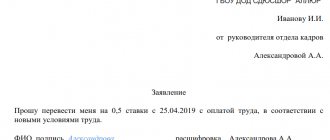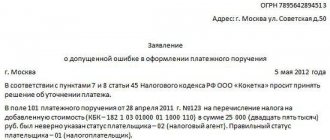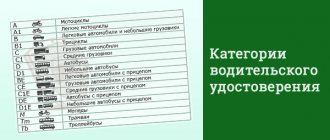What is a state secret
It’s probably worth starting with what lies behind the concept of state secret. In accordance with the legislation of our country, this is the name given to certain information from certain areas (foreign policy, economics, military sphere, intelligence and counterintelligence, operational investigative activities), the disclosure of which could entail serious damage to the country. That is why there is also such a thing as the protection of state secrets. This process takes place in several stages. First, based on the law on state secrets, a special commission draws up a whole list of data that should not be made public to a wide audience. Initially, restrictions on this data are imposed by the state. Then, separately, in each government body to which certain classified information relates, they are given special degrees of secrecy (a note about how important the document is; there are only three of them, we will return to them a little later) and measures are taken to limit the dissemination information. According to some reports, there are now more than one hundred items on the list of classified data.
Working with subscription agencies
The percentage bonuses provided for in paragraphs 1 and 7 of this Instruction are included in the wages of civilian personnel, which are subject to regional coefficients, coefficients for work in high mountains, desert and waterless areas, and a percentage bonus to wages for persons working in the Far North and areas equivalent to them.
Establish that citizens working in organizations that do not have departmental affiliation and carry out, in accordance with the established procedure, work related to the use of information constituting state secrets, allowances are paid from funds received from the main activities of these organizations, in the manner prescribed by this Resolution.
Important! Amendments to Law No. 306-FZ will be made during 2017. Already in January, new rules regarding the procedure for calculating additional payments for length of service will come into force.
Decree of the Government of the Russian Federation of April 2, 2002 N 209 “On invalidating the paragraph of the second paragraph 3 of the Decree of the Government of the Russian Federation of October 14, 1994 N 1161” (Collected Legislation of the Russian Federation, 2002, N 14, Art. 1309).
Military personnel also receive a bonus for secrecy. In 2017 it is 65% of the salary. A project to increase long-service bonuses is under consideration by the Government.
When determining the length of service in structural units for the protection of state secrets, the documented length of service in these units is taken into account, regardless of which state authorities, local governments, military units and organizations the employee of the structural unit worked for.
https://youtu.be/WFDR6-Dof-c
What will never be a state secret
Not all information from the above areas can be classified. The law on state secrets specifically spells out those data that will never and should not be subject to confidentiality. Among them is information about all kinds of catastrophes, natural disasters, emergencies of various types (and even information about their forecasts!), since they pose a threat not only to health, but also to the lives of the population, and people must be warned in advance about impending disasters in order to have the opportunity to take care of yourself and your loved ones in advance.
Also, information that can never be kept secret includes information related to the state’s ecology and sanitation. Data on the state of health care, education and agriculture - that is, areas that play an important, one might even say vital role in the destinies of the population - will never become confidential documents. Information about the situation with crime in the country cannot be withheld from the people, since ignorance of this data indirectly, but can affect the life and health of citizens. In the event that human rights and freedoms have been violated, this also cannot but become public knowledge, just as in a situation where a violation of the law occurred by representatives of bodies vested with the highest state power. By the way, about the authorities: the population of the country must be informed about the state of health of the top leadership; this information must also under no circumstances be hidden. In addition, the list of this information includes data on the size of cash reserves and gold reserves, as well as information about all possible privileges and compensation that the state provides - no matter to whom, be it an individual citizen or an entire organization. This is all the information that can never be concealed under the guise of protecting state secrets, since they are not that very secret.
Categories of people entitled to receive additional payments to their salary
The amount of the bonus is affected by the length of service in the armed forces. Recipients of allowances include:
- contract soldiers who serve in the rank of officer, warrant officer or sergeant;
- sailors, divers and pilots;
- people working in the RF Ministry of Defense in civilian positions.
The bonus is paid provided that the soldier has served for at least 2 years. When calculating pensions, length of service in the border, internal and railway troops is taken into account
Employees of the FSB and foreign intelligence agencies can count on payments from the budget. Length of service is used to determine pensions for fire service employees. The salary of employees working in the ITK depends on the length of service.
Talking about degrees
It's time to remember again the notorious degrees of secrecy, which are established separately for each new document. Which degree to choose directly depends on how important this information is and, accordingly, how large the scale of the tragedy will be if it leaks to the masses. Each level has its own special classification: “secret”, “top secret” and “special importance”. You can trace the gradation by the names of these vultures. But how can you determine which of the above three categories a particular confidential document belongs to? And who should determine this? In fact, everything has already been determined long ago - by a government decree adopted more than twenty years ago. It clearly states where to put what information. So, for example, information classified as “special importance” will include all materials from all of the above-mentioned areas (economics, foreign policy, etc.), if their leak causes damage in these areas to the entire country. This is the most important (so to speak) secrecy mode.
The “top secret” stamp is placed on those documents, the disclosure of information about the contents of which would harm the interests of the ministries of our country in one or more industries. And finally, simply “secret” includes any other information, the disclosure of which would cause considerable harm to the interests of an enterprise or organization in a particular area. Working with secret documents also involves their mandatory marking, which is applied to each document after it has become clear to which category of secrecy it belongs. Among other information indicated on the document, a mark is placed on it about the date of possible declassification - or about the conditions necessary for this to happen. In any case, information can be classified as secret for no more than thirty years. However, sometimes it happens that the period is extended, and sometimes, on the contrary, it is shortened. Thus, five years ago, data on oil reserves in the depths of our country ceased to be a state secret.
Forum for mutual legal assistance of military personnel
Dedication to information classified as “special importance” leads to an additional payment of 50-75% of the salary.
Registered with the Ministry of Justice of the Russian Federation on June 29, 2005, registration N 6753.
If an employee is admitted to first-class security documentation, then he can work with less classified information. If the permit is issued according to Form 3, then the citizen will not be allowed to work with information of particular importance.
If an employee of a unit has a break in service (work) in these units for more than 5 years, then his previous length of service (work) in the units is not counted when paying a percentage bonus.
Who is admitted to state secrets
The secrecy regime imposed on information constituting state secrets in our country also presupposes a rather limited circle of persons admitted to this information. So, people holding the following positions always have access to it: the chairman of the government, the prosecutor general, the federal minister, the chairman of the central election commission, the chairman of the Accounts Chamber, the head of the presidential administration, the ombudsman for human rights, and so on - a total of twenty different positions, twenty people. However, there are situations when this circle can be expanded (for example, when, due to duty, a person needs to obtain this or that information that is “under lock and key,” including if he works at secret facilities). In exchange for this, however, a person will also acquire some restrictions (more on them below). Then we can talk about the form of access to state secrets.
How to access
Like the categories, the above forms are also three. Those who need documents from the “special importance” category receive the first form; those in need of materials classified “top secret” - the second; Well, those who need “secret” documents acquire a third one. Without a form of access to state secrets, it is impossible to gain access to them.
What is the above form? In short, this is a written consent to certain restrictions on one’s rights in various spheres of life (we will clarify this issue further), as well as to verification by authorities; familiarization with legal norms; definition of social guarantees; permission from the manager, and so on. The verification of authorities will, in addition, affect not only the applicant for possession of state secrets, but also all his immediate relatives (and the legislation includes mother, father, husband/wife, children, brothers, sisters (including half-blooded), adopted or adoptive parents ). By the way, those who gain access using the third form are exempt from all checks - except in cases where it is considered necessary.
Is it possible to be denied admission?
One should not think that any applicant for possessing information valuable to Russia will receive permission to do so at the first request. After thorough checks, after lengthy red tape, a person may be denied access. The reasons why this is possible are the following: firstly, there is a criminal record for serious crimes. On what specific issue they were judged is not important in this case, but the fact that there is a criminal record is important, and how. Secondly, they may be denied access to classified materials if a person claims to gain access in the first or second form (where checks are required), but evades verification activities. In addition, the basis for refusal is the residence abroad of close relatives or the applicant himself (or the execution of documents for departure by one of them), recognition of him as incompetent and/or the presence of contraindications to this type of activity for health reasons.
There are few such contraindications, but nevertheless you should not discount them. These include diseases of the nervous system (in particular, susceptibility to epileptic seizures), as well as ailments such as schizophrenia, affective disorders, mental retardation, deviations from normal behavior, and so on. To prove the absence of such diseases, an applicant for possession of valuable state information must undergo a medical examination, which includes mandatory visits to doctors such as a psychiatrist, narcologist and neurologist. They will write their conclusion in a certificate that will be valid for exactly one year - so if after a year a person renews the contract for working with confidential government information, he will have to undergo the examination again.
How long do you need to serve in the armed forces to qualify for a pension?
A person applying for payments must serve at least 20 years . Next year, officials plan to increase the minimum length of service to 25 years . In this way, the state gets rid of the need to finance people who take out early retirement.
An employee’s work experience includes the following periods:
For example, a serviceman retired from the armed forces. His salary was 11 thousand rubles. He receives a monthly rank payment of 9 thousand rubles. The man served in the army for 21 years and 2 months. In 2017, the military personnel are entitled to an additional payment of 30%.
Hence, the monthly long-service bonus will be:
Restrictions
Perhaps the most common restriction to which the “lucky” owners of information constituting a state secret are subjected is the ban on leaving the territory of our country. Of course, it is not imposed for life, but for the duration of access to state secrets, a person becomes prohibited from traveling abroad. Other "bonuses" that can be obtained in exchange for ownership of information are restrictions on privacy, the dissemination of information, and the use of discoveries and inventions.
Subscription Department
The monthly percentage bonus is paid from the wage fund approved in accordance with the established procedure.
When determining the size of the monthly percentage increase, the volume of information to which citizens have access is taken into account, as well as the duration of the period during which the classification of this information remains relevant.
Often, employees of military and law enforcement agencies are faced with classified data. Such employees are entitled to a bonus for working with information constituting state secrets. To carry out such activities, employees require a special permit.
According to Art. 21 of the Law on State Secrets, if an employee of an organization is allowed to work with information constituting a state secret, the employer is obliged to pay him a percentage increase in salary depending on the degree of secrecy of the information to which he has access.
What else you should know about state secrets
If you are admitted to state secrets, you take on a huge responsibility - you undertake to the state to keep secret everything that it, the state that is, has entrusted to you. And if you can cope with this enormous task, you’re doing great. What if suddenly not? And - intentionally not? If it happened that information that was subject to the strictest secrecy suddenly leaked and became public knowledge, and moreover, the foreign public - what then? Then, first of all, they will look for the culprits. And when they find it, we will talk about another definition, which is called high treason.
This term refers to the issuance of information that is a state secret of Russia to other states. The culprit will inevitably be judged according to Russian laws, and the punishment for such a crime is quite severe - according to the relevant article of the Criminal Code, the offender will not only be required to compensate for damages in material terms, but will also be imprisoned - and not for a short period of time. The period of imprisonment ranges from twelve to twenty years, depending on the severity of the damage caused to the state by the disclosure of its secrets. As for the fine, its size varies: it is either five hundred thousand rubles, or the salary of the culprit for a three-year period. It seems that few arrests are made under this article, but this is by no means the case. Statistics say that in the period from 2009 to 2013. - that is, in just a four-year period - twenty-five people were convicted of high treason in our country. However, the law also provides for another scenario: if you notify the authorities voluntarily and in a timely manner and thereby help prevent further damage, the person will not be arrested.
You also need to understand the difference between two definitions - high treason and disclosure of state secrets. The first is always done consciously: a person understands what he is doing, realizes that his actions will harm his own country, and imagines the possible consequences. Anyone who divulges state secrets does so unintentionally, not understanding what his talkativeness can lead to. As a rule, the latter refers to people who want to present themselves better than others, show off, make an impression, and so on.
By the way, not only the transfer of confidential information to foreign representatives, but also the provision of advisory assistance to them is qualified as high treason. Thus, there was a case when a scientist from Nizhny Novgorod, who read a report on the development of explosives on a business trip abroad, was accused of treason. And a few years ago, another scientist involved in arms control was sentenced to a fifteen-year prison term.
Should FSB employees expect a salary increase in 2020?
Thus, the amount of income will remain the same, but the military, police, employees of the drug control agency, and the Federal Penitentiary Service will receive an increase of 5.5%. For this purpose, the government is allocating an amount of 40 billion rubles. It is expected that the increase will be in effect from October. In addition, the law, which has been in force since 2014, allows employees to increase their salaries depending on the conditions under which they serve. Therefore, the increase in salaries in the FSB will most likely be significant.
However, a new law has recently been passed, which makes it possible to suspend the increase in wages, as well as to reduce the bureaucracy. High-ranking officers can receive salary increases over three years. The current difficult economic situation makes the possibility of implementing government plans dependent on the situation in the country.
https://youtu.be/qAiyFozk6CQ
Secrecy bonuses
As mentioned above, working with confidential information, in addition to the obvious difficulties and inconveniences, also brings an undoubted advantage - additional money (there is hardly anyone who will not be happy about this). The order of this income is fixed in special rules governing payments to specialists working with confidential information. Moreover, although the amount of payments itself varies depending on the category of secrecy with which a person interacts, everyone receives it every month. The amount of this monthly secrecy bonus is determined as a percentage of the basic salary. For the category of “special importance” the additional payment ranges from fifty to seventy-five percent of the salary, for “top secret officers” - from thirty to fifty, and finally, comrades with access to “simply secret” information can claim an additional ten to fifteen or five to ten percent (depending on whether an audit was carried out or not).
This is not the only factor influencing the amount of premiums for state secrets. So, when determining the final amount that a person will receive additionally, the following two points are taken into account: firstly, what is the amount of information available to this employee, and secondly, how much and how long classified materials will remain relevant.
A separate category of citizens - employees of specialized units that protect state secrets - also receive bonuses, and what’s more, they are also awarded an additional amount for their length of service in such organizations. It also increases depending on the number of years of service. For a period from one to five years, ten percent of the salary is paid, from five to ten - fifteen. The maximum is twenty percent, and you can get it if you have been working in this field for more than ten years.
All payments, by the way, are made from the approved wage fund. However, all of the above is only a general procedure for paying bonuses for state secrets; one of the articles of the law on state secrets states that federal bodies can themselves set the amount of monthly allowances at enterprises and organizations included in their department. For example, civilian personnel receive payments in accordance with the decree of the Minister of Defense. For the sixteenth year now, the amount of bonuses for secrecy for civilian personnel, as indicated in the resolution, is an amount directly dependent on the degree of importance of the material. It ranges from ten percent for the most “insignificant” information to twenty-five percent for “special importance.” Nowadays municipal workers are not distinguished by huge percentages either. The secrecy bonus for municipal employees is exactly the same as indicated above.
An interesting situation has developed in the Ministry of Internal Affairs. Ordinary, ordinary employees who, as part of their duties, come across documents constituting state secrets, receive an additional ten, twenty or twenty-five percent - depending on the category of secrecy, of course. As for the authorities, the leadership in the Ministry of Internal Affairs, their bonus for secrecy is higher - for example, the heads of departments and headquarters who interact with materials classified as “special importance” receive an additional sixty percent of their military salary.
Additional payments to employees for being classified as “secret”
In particular, such persons have the right to receive a percentage increase in wages (hereinafter referred to as the secrecy bonus).
The amount of the secrecy bonus is calculated by the employer in accordance with the Rules approved by Decree of the Government of the Russian Federation of September 18, 2006 N 573 (hereinafter referred to as Rules N 573). In addition, when assigning and paying bonuses, you must also be guided by the Explanation on the procedure for paying monthly percentage bonuses to citizens admitted to state secrets on an ongoing basis, and to employees of structural units for the protection of state secrets, approved by Order of the Ministry of Health and Social Development of Russia dated May 19, 2011 N 408n (hereinafter - Explanation No. 408n).
Currently, three degrees of secrecy of information constituting a state secret have been established (Part 2 of Article 8 of Law No. 5485-1). The amount of bonuses is set for employees depending on the degree of secrecy of information to which they are admitted (clause 1 of Rules No. 573). Let's summarize this data in a table.
| Level of secrecy | Amount of bonus, % of official salary (tariff rate) |
| "Of special importance" | 50 — 70 |
| "Top secret" | 30 — 50 |
| "Secret" | 5 - 10 or 10 - 15 <*> |
<*> An increase of 10 - 15% is established for employees in respect of whom verification measures were carried out when gaining access to information constituting a state secret.
The specific amount of the premium (within the established range) is determined by the organization independently. This takes into account the volume of secret information to which the employee is admitted, as well as the duration of the period during which classified information remains relevant (paragraph 3 of clause 1 of Rules No. 573).
Note
If an organization pays bonuses in an amount less than the established minimum, it may be brought to administrative liability for violation of labor laws (paragraph 10, part 1, article 165 of the Labor Code of the Russian Federation, article 5.27 of the Code of Administrative Offenses of the Russian Federation). Let us remind you that the sanction for committing this offense is a fine in the amount of 30,000 to 50,000 rubles. or suspension of activities for up to 90 days.
The bonus is paid at the expense of the wage fund approved in the organization (paragraph 4, clause 1 of Rules No. 573). At the same time, organizations that do not have departmental affiliation pay bonuses from funds received from their main activities (clause 4 of the Decree of the Government of the Russian Federation of September 18, 2006 N 573).
The bonus is accrued simultaneously with the salary (Part.
1 tbsp. 129 of the Labor Code of the Russian Federation).
Based on clause 3 of Art. 255 of the Tax Code of the Russian Federation, accruals of a compensating nature, which are related to the work schedule and working conditions and made in accordance with the legislation of the Russian Federation, are classified as labor costs for tax purposes.
Consequently, organizations have the right to take into account the costs associated with the payment of secrecy premiums when calculating the tax base for income tax. The regulatory authorities adhere to a similar position (Letters of the Ministry of Finance of Russia dated April 17, 2006 N 03-03-04/4/67, Federal Tax Service of Russia for Moscow dated May 23, 2007 N 20-12/049609).
However, to do this, the following conditions must be met:
1) expenses must be documented.
According to para. 7 hours 3 tbsp. 21 of Law No. 5485-1, paragraph 3 of Explanation No. 408n, the bonus is paid on the basis of an order (instruction, instruction) on the employee’s work with classified information on an ongoing basis. Such an order reflects the following information: position, full name. employee, date of registration and number of his access to information constituting state secrets, amount of the established bonus.
By virtue of clause 3 of Explanation No. 408n, this order must be issued at least once a year, and also:
— when making changes to the staffing table;
— when making changes to the nomenclature of positions of employees subject to registration for access to state secrets;
— in case of changes in the form of access of citizens to state secrets;
- when hiring citizens and dismissing them.
Thus, the main document confirming the reality of expenses is an appropriately executed order (instruction, instruction).
Let us note that since the need to pay employees bonuses for secrecy is established by law, organizations are not obliged to stipulate such payments in labor and (or) collective agreements (paragraph 1, paragraph 3 of Article 255 of the Tax Code of the Russian Federation). At the same time, we consider it advisable to do this in order to exclude possible claims from inspectors;
2) the allowance should be taken into account in expenses only within the limits established in Rules No. 573. We believe that excess amounts are not economically justified costs and do not reduce taxable profit.
Date of publication: 2015-07-22; Read: 529 | Page copyright infringement
Who doesn't get paid
There are separately specified and specified in special resolutions/orders/decrees when a person is not paid additional money, despite the clearance he has received to state secrets. One of these moments is, for example, parental leave. If an employee (be it mom or dad) goes on maternity leave, the payment of bonuses automatically stops.
In addition, employees who stop working with confidential documents for one of the following reasons do not receive bonuses: they either no longer hold their previous position, or they no longer have constant access to information that is a state secret for one reason or another (for example, they were released order from this type of activity). In addition, employees who went on leave without pay do not receive additional money, even if these employees had such benefits up to that point. It is necessary to immediately stipulate: when going on a regular vacation according to the schedule, as well as while on sick leave or on a business trip, the employee retains and pays additional funds. At this time, a person receives an average salary, therefore, the percentage for calculating additional allowance is calculated on it.
If a person has lost constant access to confidential documents, no longer occupies his position, or has gone on leave without pay, the additional payment to him is suspended from the day following that date. By the way, we should clarify what “permanent access” means. This means working with classified information received in any form (electronic, printed, on hard drive - it doesn’t matter) for a year in a row. As a rule, it is for this period that contracts are concluded, which are later either renewed or not. It is worth remembering that working with confidential documents and, accordingly, access to state secrets is voluntary. You cannot be obligated to work with such materials. Consequently, a person can decide this issue himself and refuse such an offer. But, of course, there won’t be any extra payments then either.
Secrecy bonuses, therefore, are a good thing, but you should think twice about whether the game is worth the candle.
The procedure for paying bonuses for state secrets (Soboleva E.)
Military personnel undergoing military service under a contract (hereinafter referred to as military personnel in this section), depending on the degree of secrecy and the amount of information to which they have documented access legally, are paid a monthly bonus for working with information constituting a state secret (hereinafter referred to as this section - an allowance), in the following amounts: a) for work with information that has a degree of secrecy of “special importance” - 25 percent of the salary for a military position;
b) for work with information classified as “top secret” - 20 percent of the salary for a military position; c) for work with information classified as “secret” - 10 percent of the salary for a military position. 49. The bonus is paid based on the order of the commander of the military unit, which is issued, as a rule, at the beginning of the calendar year. When appointed to a military position (temporary performance of a military position), the payment of the bonus is made from the day specified in the order of the commander of the military unit on the payment of the specified bonus. The order indicates the military rank, surname, first name, patronymic, military position held (according to the nomenclature (list) of positions of employees subject to registration for admission), number, date, month, year of access to information constituting a state secret, and the amount of the established bonus in percent. For commanders (chiefs), the allowance is established by orders of higher commanders (chiefs). 50. The allowance is not paid to military personnel: - released (removed) from their military positions; — in respect of which admission has been terminated; - exempt from work on a permanent basis with information constituting a state secret, by order of the commander (chief); - those on parental leave; - at the disposal of the relevant commanders (chiefs); - during the leave granted upon dismissal from military service. Payment of the bonus ceases from the day following the day of release from military duty, termination of admission, release from work on a permanent basis with information constituting a state secret.









